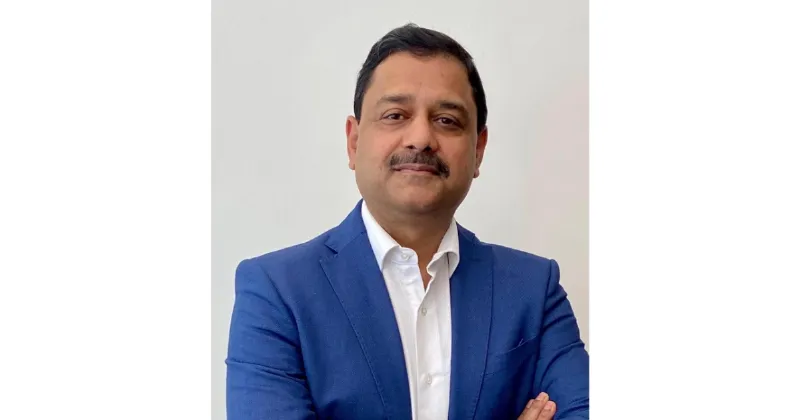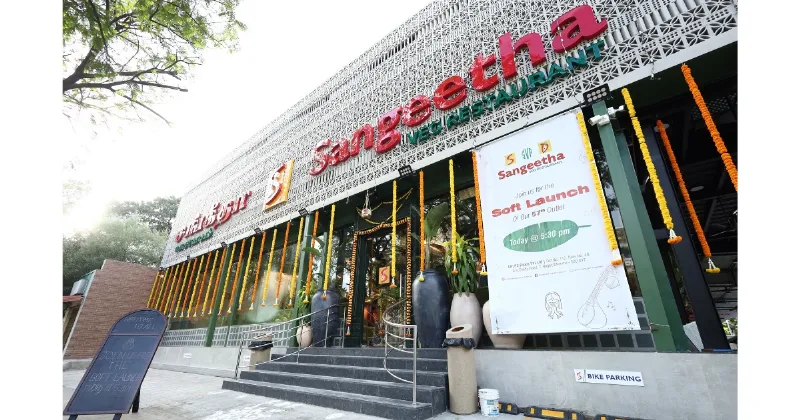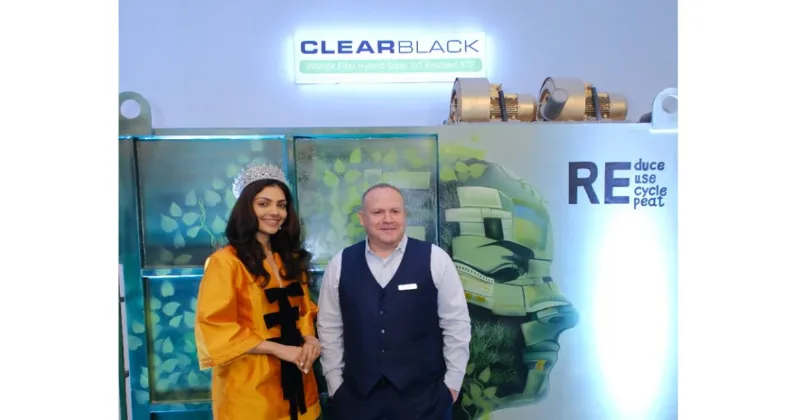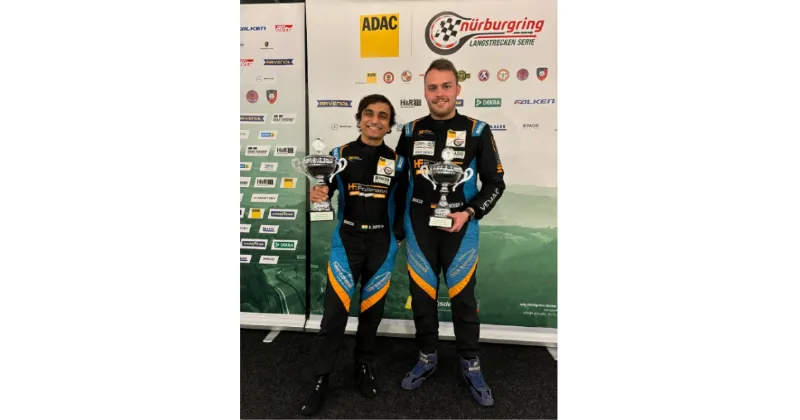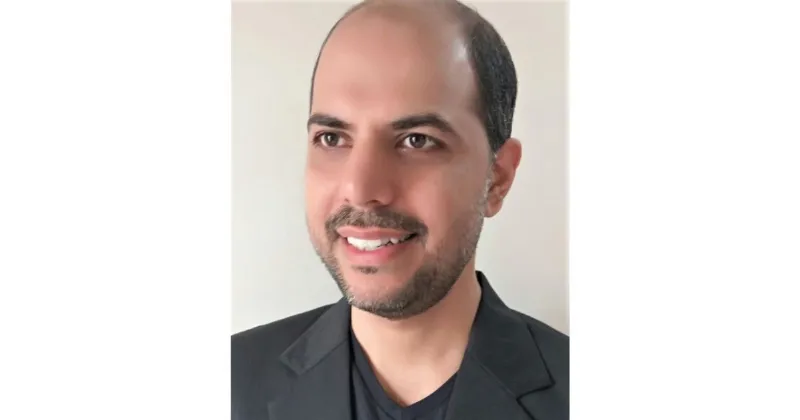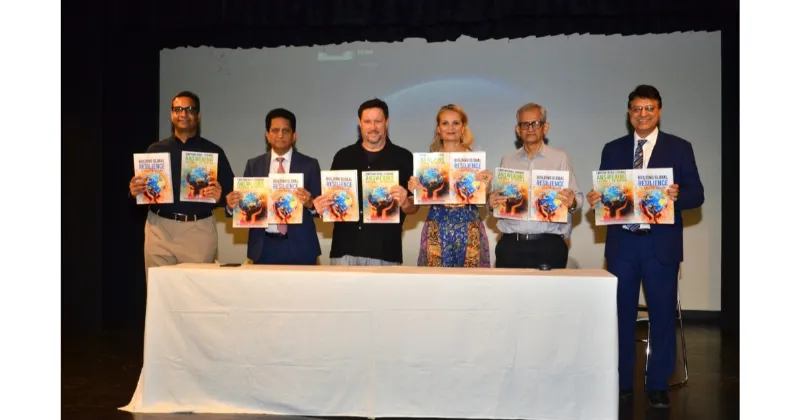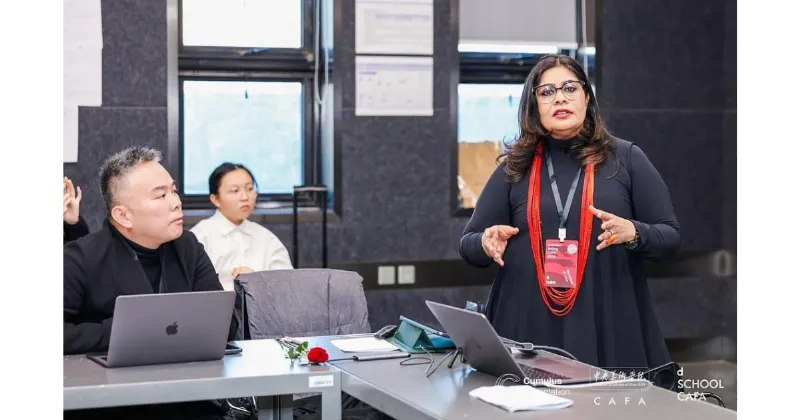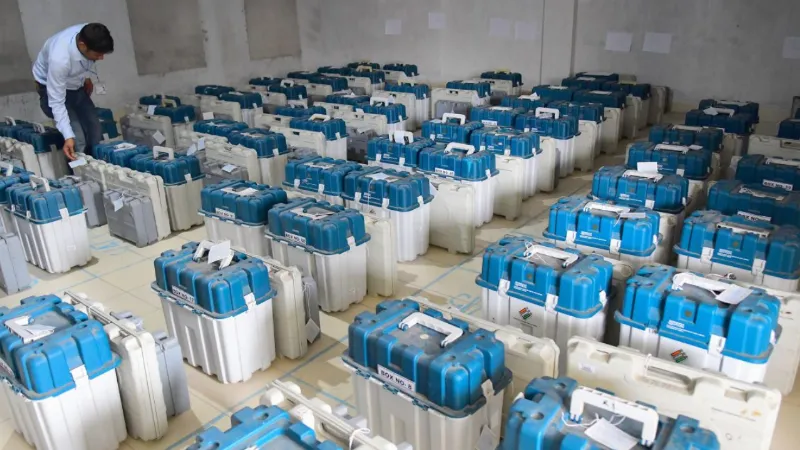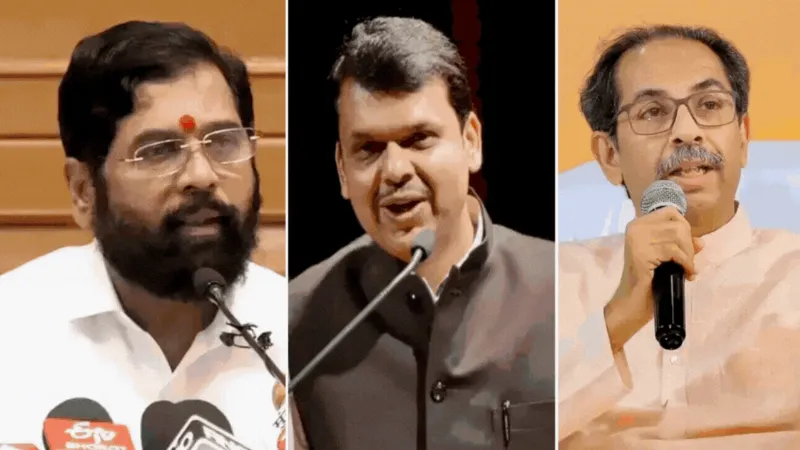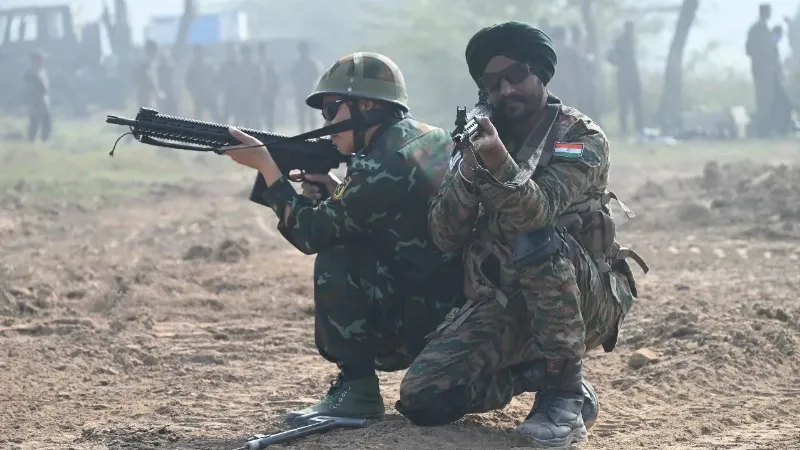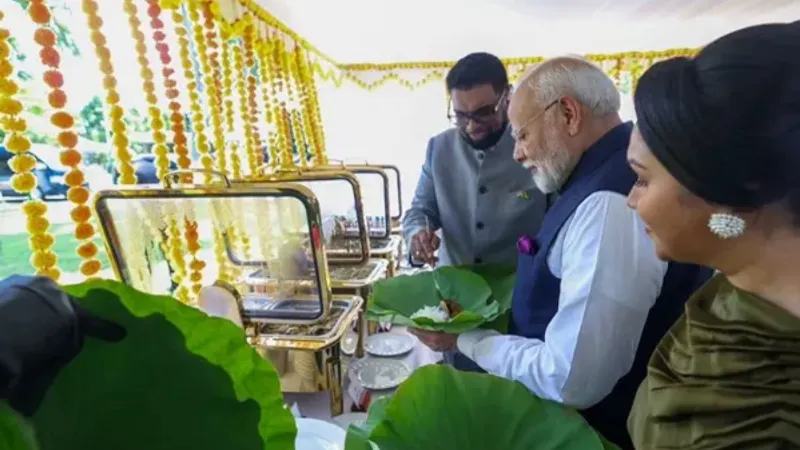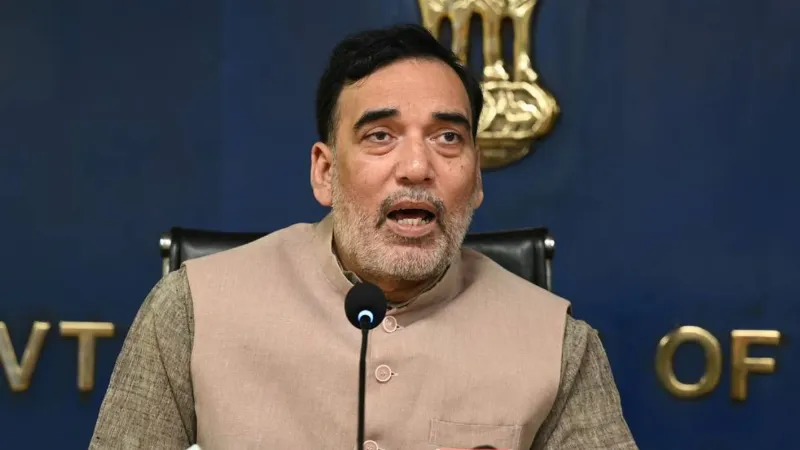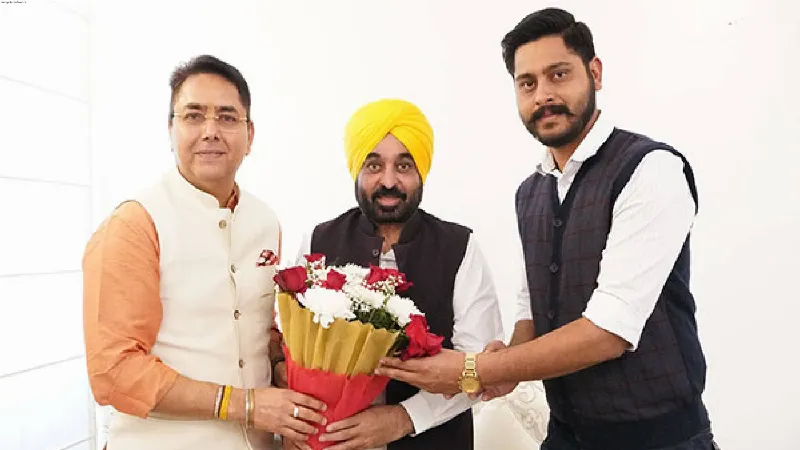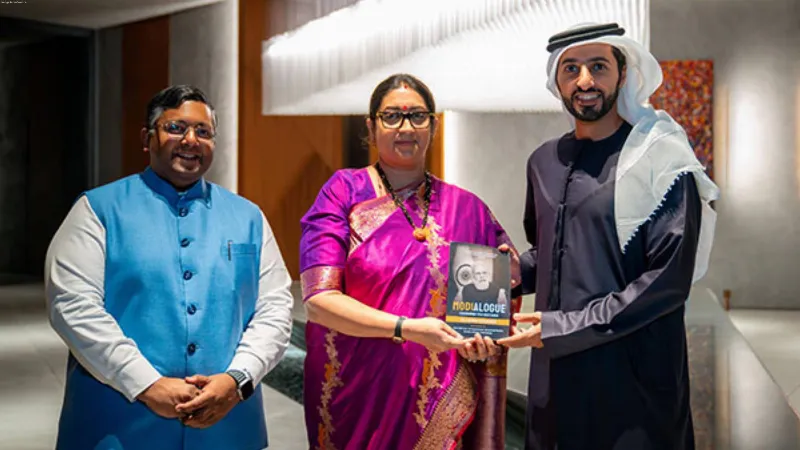Insights and Optimism: Leading Cancer Experts Offer Perspectives on World Cancer Day

New Delhi: On World Cancer Day, let's join hands to make people more aware and support those bravely dealing with cancer. It's a day to speak up, show understanding to patients and their families, and give them hope. In this article, health experts share their thoughts on World Cancer Day, talking about how they're working together to make cancer care better and provide essential support. The aim is to bring more understanding, resilience, and optimism to individuals and families facing the challenges of cancer. Together, we can create a supportive community and spread hope on this important day.
Dr. (Col) Tarun Verma and Dr. (Col) N. Chakravarty, Directors, Hematology & Hemato-Oncology, Yashoda Superspeciality Hospital & Cancer Institutes, Ghaziabad.
Wishing the readers on World Cancer Day on behalf of Yashoda Healthcare, former Indian Army Oncologist, Dr. (Col) N. Chakravarty, says, “This World Cancer Day, let’s take a pledge to avoid tobacco and its related products, and make our environment and all citizens healthy”. "Unlike the commonly held misconception, most blood cancers are treatable, some even curable. Hence, the aim should be on early diagnosis and treatment. Because blood cancer patients require frequent blood and platelet transfusions, he urges people to donate more blood to save the lives of their fellow beings. The good news is that Bone Marrow Transplant is fast becoming a possible cure for many blood cancers, especially in the case of blood relations. Hence, this option should be more explored,” says Dr. (Col) Tarun Verma.
Cancer affected 19.3 million people worldwide and resulted in nearly 10 million deaths as per the WHO. The purpose of World Cancer Day is to educate people about cancer, its prevention, and treatment options and the theme for years 2022-2024 is 'Close the care gap'. Not all cancers are deadly and the most common ones are preventable by eliminating the modifiable risk factors i.e. Tobacco, Alcohol, Obesity and Human papillomavirus infection. In India, oral cavity and lung cancers are prevalent among males. Prevention is key, quitting smoking and avoiding smokeless tobacco significantly reduce the risk of these cancers. Breast and cervical cancers top female cancer prevalence list. Alcohol, obesity, nulliparity, and breastfeeding avoidance heighten breast cancer risk, emphasizing modifiable lifestyle factors. Vaccination against Human papillomavirus can prevent more than ninety percent of all cervical cancers.
Sr. Consultant Radiation Oncology at Paras Healthcare, Patna shares invaluable insights on cervical cancer in the context of World Cancer Day. Cervical cancer, affecting the lower part of the uterus, is a significant global health concern, with India contributing to a quarter of cases and deaths worldwide. Dr. Jha emphasizes the role of Human Papillomavirus (HPV) in initiating most cervical cancers and advocates for preventive measures, including vaccination, routine Pap tests, and safe practices. Recognizing early signs, such as vaginal bleeding and pelvic pain, Dr. Jha underscores the importance of prompt medical attention. She promotes hope, emphasizing cervical cancer's preventability and curability through screenings, vaccinations, and overall well-being. Dr. Sneha Jha's expert advice serves as a beacon of optimism, empowering individuals to proactively safeguard their health against cervical cancer.
Dr. Waheedu Zzaman, MBBS, MS (Gen Surgery), MCh (Urology), DNB (Urology), MNAMS, DIP Lap Urology (France), Robotic Urology Training, Rosewell Park Institute, (USA) – Director Urology and Renal Transplant, Max Super Speciality Hospital, New Delhi
Dr. Waheedu Zzaman, a beacon of excellence in Urology and Renal Transplantation, combines cutting-edge interventions with empathetic care for complex cases. Dr. Zzaman's philosophy centers on personalized strategies, ensuring each patient's journey is met with medical expertise and compassionate support. Being a Health professional, he believes that a combination of medical therapy, medical prevention, adoption of a healthy lifestyle and supportive care offers the best chance to maintain a patient's quality of life and there are various studies available that have shown that being optimistic and having positive attitude can lead to a better quality of life for Cancer patients. Dr. Zzaman, with fellow healthcare professionals, contributes to triumphs over challenges, weaving stories of resilience and instilling hope. A day dedicated to advancing medical care, fostering hope, and striving for a healthier, cancer-free world.
Dr. Bharat Ashok Vaswani, MD (General Medicine), DM (Medical Oncology), MRCP-UK (Medical Oncology) ECMO, PDCR, Senior Medical Oncologist & Hematologist – Yashoda Hospital, Secunderabad
Cancer is one of the leading causes of death all over the world. The incidence of cancer in India is increasing with approximately 15.7 lakh new cases by 2025. To increase awareness among the general public 4th February is celebrated as World Cancer Day. In keeping with this campaign, the theme this year is “Close the care gap”. These address inequalities in cancer care and take action to address this gap. Efforts should be made both at administrative and personal level to reduce this gap. The best way to increase survival is to detect cancer early and treat it effectively. This can only be possible with the availability of quality health care even at the periphery, screening, early detection and proper treatment. To close the gap in cancer care, priorities resources and do public-private partnerships in creating awareness and strengthening prevention programmes for screening of cancer and Vaccination. Regular health talks by experts to enlighten people about the benefits of early diagnosis and newer diagnostic and treatment modalities in the field of oncology. Proper treatment at the right time seems to be a mantra for better survival in cancer patients.
Dr Karthik K Prasad, MBBS MS General Surgery, DNB Surgical Oncology, Solid Tumor Oncologist, Gleneagles Hospital, Bengaluru
In today's fast-paced world, cancer cases are on the rise, and a diagnosis often triggers an immediate response to seek treatment. However, it is crucial to pause and thoroughly review the biopsy report and to evaluate the patient completely as the entire course of cancer treatment and prognosis hinges on this crucial report. Biopsy reports are crucial for effective cancer treatment, serving as the cornerstone of diagnosis. This report is often ignored, as patients and providers seek quick results or neglect to collect it altogether. For the best possible outcome, it is vital to provide pathologists with sufficient time to meticulously study and analyse the specimen before delivering the final diagnosis. The histopathology report is pivotal in cancer treatment, initiating the appropriate path. An accurate diagnosis shapes a patient's treatment journey and overall well-being.
Dr. Mishil Parikh, MBBS, MS, Orthopaedic Oncologist, Consultant Orthopedic Oncosurgeon at Sir H.N. Reliance Foundation Hospital, Mumbai
On World Cancer Day, reflecting as an Orthopaedic Oncosurgeon, Dr. Mishil Parikh emphasizes the global battle against musculoskeletal tumors. This day underscores the need for awareness and unity in the face of this formidable adversary. Dealing with bone and soft tissue tumors in orthopaedic oncology, we witness the toll on individuals and their families. Each patient's journey is unique, requiring a comprehensive approach. Early detection is crucial, often hindered by subtle symptoms. Advocating for regular screenings enhances early identification and more favorable treatment outcomes. Technological advancements in diagnostics and targeted therapies are transforming our practice. As Orthopaedic Oncosurgeons, tailor treatments to each tumor's unique characteristics. Dr. Mishil Parikh urges continued efforts toward a future where the burden of cancer is eased, and hope, resilience, and triumph prevail for those facing musculoskeletal tumors.
Dr. Aniket Mohite, Hematologist, Hemato-Oncologist and Chief BMT Physician at Jehangir Hospital, Pune and Novo Solitaire Care, Kharadi
The projected cancer incidence in India is set to rise to 15.7 lakhs annually by 2025 from 14.6 lakhs in 2022. Blood cancer diagnoses occur approximately every 3 minutes, constituting ~6% of total cancers, with Lymphoma being 50-60%, followed by Leukemia and Myeloma. India ranks 3rd globally in reported blood cancer cases after the US and China, affecting over 70,000 individuals annually. Factors contributing to the surge include healthcare advances enabling early diagnosis, increased pollution exposure, pesticides in food, and lifestyle changes. In a typical week at Jehangir Hospital, 10-20 new blood cancer cases are consulted. Contrary to the myth of poor survival rates, advances in Immunotherapy and Targeted therapies enhance patient tolerance and minimize side effects. Curative measures like Bone Marrow Transplant and innovative treatments like CART show promising outcomes, ensuring better long-term survival for patients with blood cancers. Gene therapy is on the horizon for the near future. For any cancer patient, we can confidently declare, 'Cancer may have started the fight, but I will finish it.' With advancements allowing us to provide cures for most cases, there is hope on the horizon.
Dr. Sachin Kadam, Consultant Surgical Oncologist – Currae Cancer & Multi-Speciality Hospital, Mumbai
Dr. Sachin Kadam, a Consultant Oncosurgeon in Mumbai, reflects on the significance of World Cancer Day, initiated on February 4, 2000, during the World Summit Against Cancer in Paris. Aligned with the Paris Charter, this global movement strives to promote research, prevent cancer, improve patient services, raise awareness, and mobilize communities against cancer. The thematic focus from 2022-2024 is "Close the Care Gap," emphasizing evidence-based medical practices, guideline development, prioritization of quality anti-cancer care, enhanced cancer specialization, and patient access to clinical trials. The 2024 campaign, "Together, we can challenge those in power," seeks a commitment from leaders to prioritize cancer, address health inequities, and invest resources for a just and cancer-free world. Dr. Kadam underscores the importance of evidence-based strategies to prevent and control cancer, highlighting modifiable risk factors like tobacco use, poor diet, alcohol consumption, and lack of physical activity, as well as specific risk factors for certain cancers.
Dr. Nitin Singhal, MCh, Surgical Oncology (Tata Memorial), Senior Consultant Minimal Invasive (Laparoscopic / Robotic) and Hipec Surgery, Practice in Ahmedabad.
Cancer has become a household disease and its incidence is increasing every day. The annual observation of World Cancer Day is a global initiative to raise awareness and encourage the treatment of the illness. One of the most crucial elements of fighting cancer that can help save lives is knowing everything about the disease, how to prevent it, and how to diagnose it and that is why initiatives like this help in bridging the information gap. With newer techniques and their evolution like cytoreductive and HIPEC surgery, there is hope for many advanced cancers which were deemed incurable similarly minimally invasive surgery especially robotics brings precision surgery into focus with faster recoveries, minimal blood loss and scars ensuring that the quality of life is not compromised in the quest for quantity, fighting the disease. Having cancer doesn’t mean it is the ending, have the authority and fight your way out with a big bright smile and a warrior’s heart.

